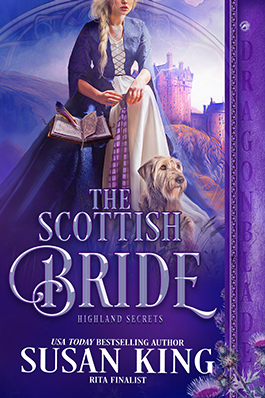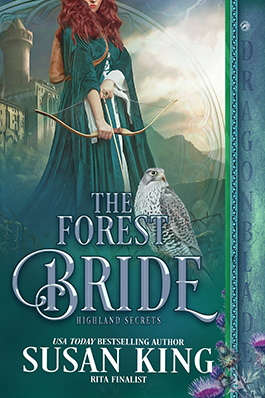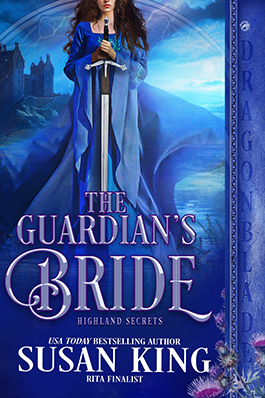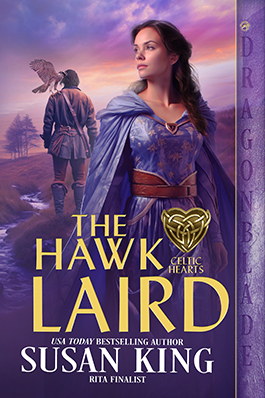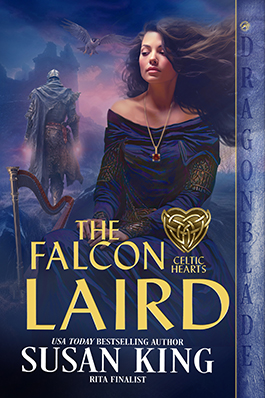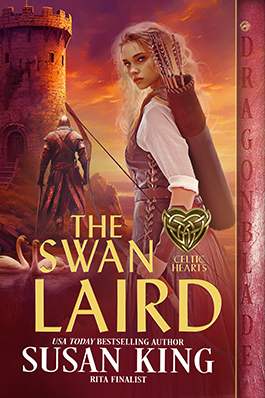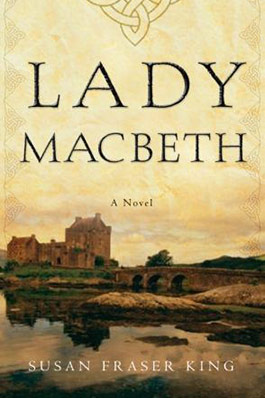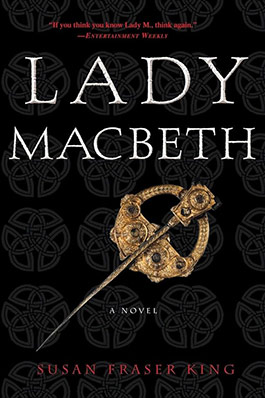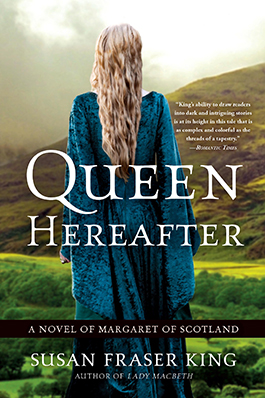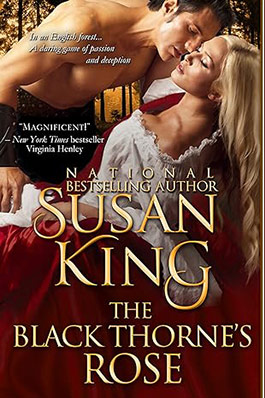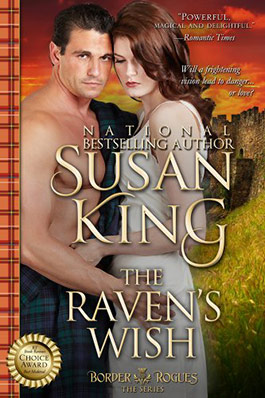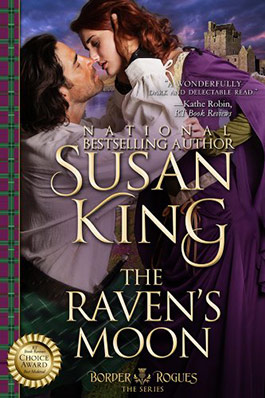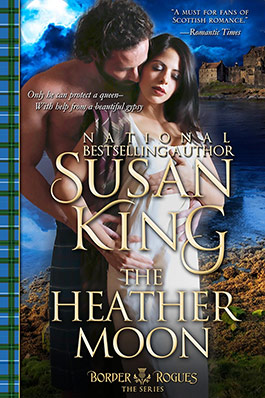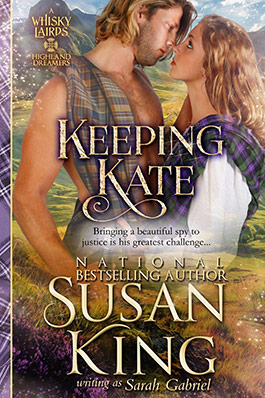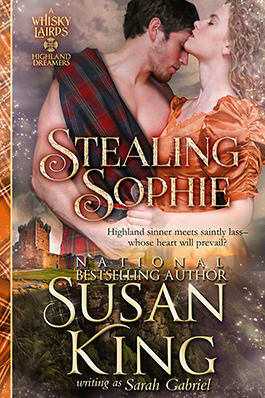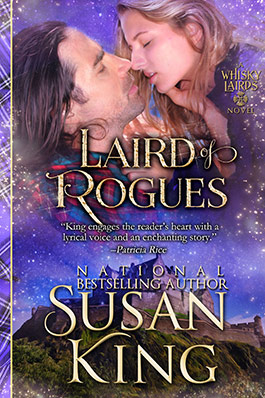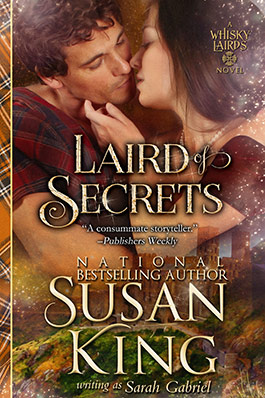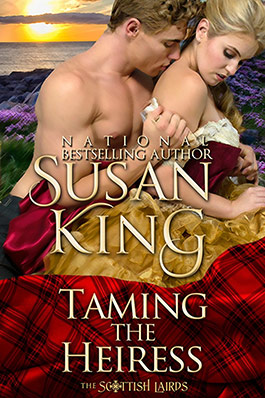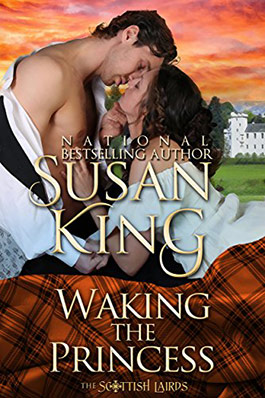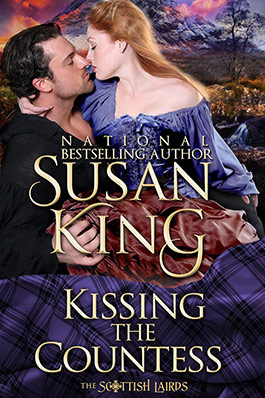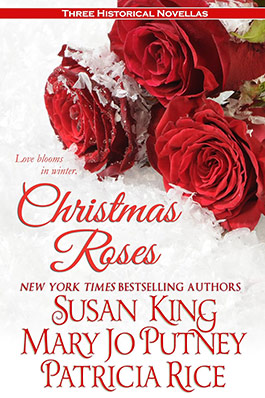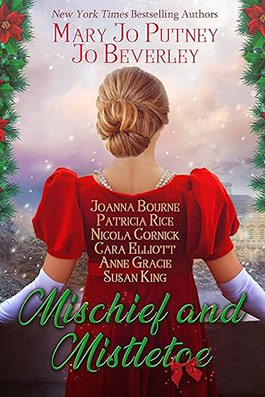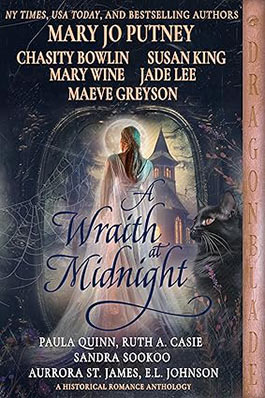Laird of Twilight
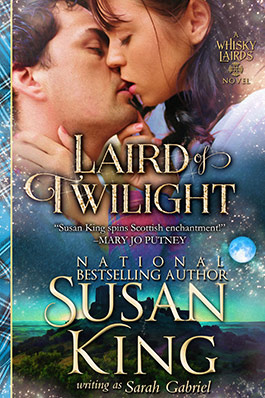
A Grandmother's Will and Secrets From the Fairy Realm Bring Love to the Scottish Highlands in Laird of Twilight, a Historical Romance from Susan King
--Scottish Highlands, 1822--
James MacCarran, the new Viscount Struan, has no desire to venture onto the thorny battlefield of marriage. But his grandmother's will issues an ultimatum—marry a Highlander with fairy blood or forfeit his inheritance. Then he meets Elspeth MacArthur. She's beautiful, enchanting—luminous, really—with something mysterious and unique about her.
Yet, Elspeth is keeping an astonishing family secret and spurns the hopeful and handsome Lord Straun, confident he will never accept her situation.
But when an ancient and mystical force portends to reveal the truth behind her secret, Elspeth quickly realizes her only haven is in James' passionate embrace . . . the most dangerous place of all.
When his grandmother's will forces a reclusive and scholarly viscount to search for a fairy bride, he finds a beautiful Highland girl more magical than he ever thought possible . . . .
Scotland, The Highlands, September 1822
Best hurry, Elspeth told herself. Two carriages had departed since she had first entered the garden, but someone might remain in the house. Coming here, she had hoped the place would be empty and had thought the storm might hold off—she had been wrong on both counts. She could only hope Lord Struan himself, the new viscount, was not still at home.
The household staff would be leaving for a few days, as was traditional this time of year when the fairies were said to ride the Struan estate—so this had seemed a good time to explore the garden to look for her grandfather’s lost stone, said to be magical, and which was supposedly lost in the gardens at Struan House. But the day’s poor weather was making that task difficult—and in broad daylight, despite the downpour, she might be spotted trespassing./
Well, she was here, and may as well search quickly. According to legend—and to Grandfather Donal MacArthur too—a fairy entrance, a portal into another realm, existed somewhere on the hill at the back of the vast gardens. Curious to know if Donal’s tales of meeting the fairies had any truth to them, as he claimed, she had come to the garden by the back gate. But now, wary of rain and mud, not to mention being seen, she knew she should leave.
Her grandfather would have said that the Daoine Síth had brought on the bad weather. Tradition said the Fey had such power, and if so, they would want to prevent anyone finding a portal to their realm. Caught between belief and logic, Elspeth stood motionless by the rock wall high on the hill, and glanced around in the rain.
She tried to remember where her grandfather had stood the day the two of them had visited this place years ago, when he had disappeared into the rock itself—or so she had thought as a child; she had run home when he had vanished, and when he had returned much later, he said he had gone into the fairy world. Being so young, she had believed him.
Where had he hidden the pretty blue stone? He had used it that day as if it were a key, and had set it aside.
Pulling up her plaid shawl against the slanting rain gave her some protection, but her gown, short jacket, and leather boots were becoming soaked. She needed to look around quickly and depart. If discovered up here, she could hardly explain that she was searching for a lost fairy stone that belonged to the MacArthur family, not to the Struan estate. It would sound pure madness. The elderly Lady Struan would have enjoyed it immensely, but that lady was gone—a good friend to the MacArthurs and a kind woman, she had been fascinated by legends of fairies, and even wrote books about them. But her heir, the new viscount lately arrived from Edinburgh, would not be so accommodating.
Even the fairies would have sense enough to stay out of such rain, Elspeth told herself, wiping a muddy hand across her brow. She made her way along the hilltop carefully, the earth mucky beneath her feet. Thunder boomed, and she jumped a little. Hurry, she told herself.
A dog barked, and a man called out in the distance. Startled, Elspeth whirled to peer through sheeting rain, taking a step. Her heel hit a sluice of rainwater and her feet went out from under her—and before she could stop herself, she was sliding downward on a cascade of mud. Bumping along, she landed with a lurch at the bottom of the slope, skirts tangled and mucky, feet sprawled. Sitting up, she pushed her shawl away from her face and shoved back her dripping hair.
Black boots stood an inch deep in rain and mud just in front of her. Looking up the length of him, she saw brown trousers, a walking stick, a brown jacket, a damp neck cloth—and a handsome face, blue eyes, the quirk of a bemused smile. Lord Struan was staring down at her.
“Why, Miss MacArthur,” he said. “How pleasant to see you again.”
* * *
No fairy nor eldritch hag, as the housemaid had feared, sprawling at his feet. Just a wet, bedraggled girl in a muddy dress and plaid shawl. Slim and well-shaped from her neat ankles and small boots to her slender shoulders, she looked young, rather pretty despite all, quite miserable—and familiar. James MacCarran, Viscount Struan, suppressed his surprise to see her here, of all places, and in such disarray.
“Miss MacArthur,” he repeated, leaning down to extend a hand. “Let me help you up.”
Gasping, she hastily shoved her skirts down over her legs and adjusted the sopping plaid. James saw a heart-shaped face haloed by a soggy bonnet and curling tendrils of black hair, and the eyes that looked up at him were gray-green, silver as the rain.
“May I ask,” he murmured, “what the devil you are doing in my garden?”
“Lord Struan, good day,” she said. “You need not swear.”
“Apologies. I plead the shock of the moment.” He offered his hand again. “Are you hurt?”
She waved his hand away and managed to clamber to her feet, wincing suddenly. “I’m fine, sir.”
He doubted that, seeing how she favored one foot and hopped about. “Are you sure? Well then. What can I do for you?” Water ran from the brim of his hat. He was drenched and so was she as the rain continued to pound. He waited politely.
“Welcome to Struan and the glen, my lord,” she said. Thunder rumbled. “Are you just arrived from Edinburgh? I hope you are enjoying the Highlands.” Wiping the back of her gloved hand across her muddy face, she sniffed.
He inclined his head. “I am quite enjoying them now.”
“Truly, I must go. Please excuse my intrusion.” Turning, she stepped to the side, and gasped as her footing faltered. James took her elbow.
“Come along, Miss MacArthur,” he said firmly. “I am not about to let you walk out in a thunderstorm. Into the house we go.” He turned with her.
He led her down another incline and along the stone pathway through the wet, raggedy garden, and soon realized that the girl was having difficulty walking. The rain lashed nearly sideways now, and he set an arm about her shoulders to protect her as she hunched forward, drawing up the soggy plaid against the downpour.
Lightning cracked brightly overhead, and the wind whirled about them. James felt an eerie sense, as if there were real danger in the air even beyond the storm.
“Hurry,” he said, pausing to snatch her up in his arms, taking the garden path in quick strides. He had dropped his cane somewhere, but for some reason his weaker leg did not hinder him as much as usual. Moving along a slate pathway lined with leggy marigolds and late pansies, he headed for the nearest door, the one that led to the kitchen, while Elspeth MacArthur rode lightly in his arms, arms about his neck.
Thunder pounded again, and for an instant James resisted the nightmare at the edge of his thinking, a dark glimpse of the moments when he and his Highland regiment had defended ground against an onrush of French cuirassiers—booming thunder too often brought back Quatre Bras. But the girl and her need was a fine distraction this time. He hurried, reaching the door, managing the handle as he balanced Miss MacArthur in his arms, and nearly hurtled inside.
In the dim corridor, the wolfhound and two terriers waited, shuffling out of the way as James kicked the door shut and turned to carry the girl down the hall, past the kitchen, up a few steps to the main hallway and along to the parlor. The dogs trotted close and curious on his heels.
The MacArthur girl was a sopping wet bundle, but no burden. She fit in his arms like sin itself. Her curves eased against him, warming them both. Her face was close to his, breath soft upon his cheek, one arm circling his shoulders, a hand on his chest.
His breath came quickly, his heart slammed not from the physical effort, but from the need to ignore how sweetly she fitted so warm and wet against him. She was no doubt ruining a very good shirt, he told himself. Think of the need to get her to the heat of the fire and—no, he thought. Not that. Think of the ache in his left leg from a wound incurred several years ago. Think of the good cane he had dropped somewhere in the garden. Blast it, his hat was lost, too, and the rain had likely ruined a decent coat as well.
Mundane thoughts, but helpful for keeping his mind off the delicious creature in his arms, gazing up at him as if he was some sort of hero. He nearly laughed. Dull was what he preferred to be, what he had worked hard to establish for himself these past years. No hero any longer, he hoped. This mad rain-soaked adventure was out of character for him now.
But adventure was nothing new whenever he encountered Elspeth MacArthur. He had met the young lady only weeks before in Edinburgh, at the ladies’ assembly during the king’s visit—not only had he met her, he had ended up kissing her on an impulse he still could not explain, a tender kiss and an incandescent feeling that had filled his heart and soul in one spontaneous moment, one he had not yet forgotten.
Set it aside, he admonished himself. Once she was dry and warm, he would find out why the lovely Miss MacArthur of Kilcrennan—the local weaver’s granddaughter—had been in his garden. Surely she had been mistaken for the so-called fairy that had scared off the last of the housemaids, turning his household—with its new laird in residence less than a week—upside down. . . .





